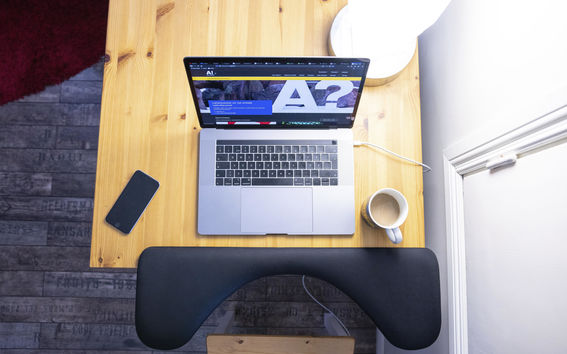ACRIS, open access publishing and manuscript service
Instructions on open access publishing in ACRIS

If the publication is open access under a Creative Commons license, Open Science and ACRIS team deposits the final published version to Aalto's institutional repository.

Instructions on open access publishing in ACRIS
Table below summarizes the different versions of a scientific publication and the possibilities for self-archiving. Always check the terms directly from the publisher or from Open policy finder.
For any questions, please don't hesitate to contact the Open Science and ACRIS team at acris@aalto.fi.
| Article version | Submitted manuscript | Accepted manuscript | Final publication |
|---|---|---|---|
| Terminology used |
Preprint Submitted manuscript Submitted version Author-submitted article Author’s original manuscript (AOM) |
Postprint Accepted manuscript (AM) Final accepted manuscript (FAM) Author accepted manuscript (AAM) Final draft Accepted article Accepted version |
Version of Record (VoR) Final published version Final published article Publisher’s pdf |
| Definition | Submitted manuscript version prior to peer review |
Peer-reviewed and accepted version Without publisher´s editing and layout |
Published article Publisher's layout including page numbers and pictures |
| Can I self-archive it? |
Publishers usually allow self-archiving without an embargo period |
Publishers usually allow self-archiving but may require an embargo period |
Open access publications with a Creative Commons license can always be self-archived For non-open access publications, publishers usually do not allow self-archiving or allows it only after an embargo period |
Widely-used repositories:
| Repository | Research areas | Please note: |
|---|---|---|
| ACRIS/Aaltodoc | Institutional repository of Aalto University | Only publications with Aalto University affiliation can be self-archived |
| arXiv | Physics, mathematics, computer science | Also postprint versions can be self-archived, according to publishers' terms |
| bioRxiv | Biosciences | |
| ChemRxiv | Chemistry | Only preprint versions can be self-archived |
| RePEc | Economics | |
| SSRN | Multidisciplinary |
Most repositories offer the use of open Creative Commons (CC) licenses. However, publishers may have different terms for the use of CC licenses in self-archiving, and the terms depend on the version of the article. Always check the terms directly from the publisher or from Open policy finder.
For any questions, please don't hesitate to contact the Open Science and ACRIS team at acris@aalto.fi.
Open content licenses - Creative Commons
Most publishers allow the use of a CC license in a final publication only if the article is published open access, which usually requires paying an article processing charge (APC fee).
Several publishers prohibit self-archiving the accepted manuscript with a CC BY license (e.g. Springer Nature), while some publishers may require the use of a CC BY-NC-ND license, which prohibits commercial use (e.g. Elsevier).
Several repositories allow the use of CC licenses for the preprint versions. However, we recommend using restrictive licenses for preprints (e.g. the non-exclusive license offered by arXiv), to limit re-use before the final publication of the peer-reviewed article.
If you aim to publish your preprint in a journal, check from Open policy finder whether the policy of the target journal is clear that a preprint will not pre-empt its publication. Please note that social media network services (e.g. ResearchGate, Academia.edu) are usually not acceptable repositories by publishers.
Publishers' guidelines on self-archiving can be checked from Open policy finder or directly from publishers' websites. Below are links to publishers' guidelines that provide information on their self-archiving policies:
American Chemical Society (ACS)
American Institute of Physics (AIP)
American Association for the Advancement of Science (AAAS)
Association for Computing Machinery (ACM)
Most funders require that peer-reviewed scientific publications are self-archived in a repository, which ensures long-term preservation and free open access to the publication. The repository can be an institutional repository (ACRIS/Aaltodoc at Aalto University) or a subject-specific repository (e.g. arXiv).
Please note that social media networks (e.g. ResearchGate, Academia.edu) are not accepted as repositories by funders, because permanent availability in these services is not guaranteed, and publications may be openly accessible only to logged-in users.
If the final publication is not open access at publisher's website, you should self-archive the accepted manuscript because funders require open access for peer-reviewed publications. Self-archiving the preprint version (version prior to peer review) may not necessarily meet funders' requirements.
Funders' open science requirements
Funders committed to Plan S initiative, such as the Research Council of Finland (former Academy of Finland) and EU, generally require a CC BY license for peer-reviewed scientific publications in projects where the funding call has started after 1 January 2021.
Many publishers usually allow the use of CC BY license only for open access publications which require a separate article processing charge (APC fee). Similarly, many publishers prohibit self-archiving of the accepted manuscriptunder a CC BY license. Therefore, self-archiving may not necessarily meet funders' open access requirements in projects subject to Plan S principles.
Plan S includes a Rights Retention Strategy (RRS), which would allow researchers to self-archive their accepted manuscripts immediately open access under a CC BY license, and thus comply with Plan S principles without any separate open access fees.
Plan S Rights Retention Strategy
Several universities in Europe (e.g. some universities in Norway and in UK) have already included RRS in their open access policies. To date, none of the universities in Finland have implemented RRS.
In 2023, RRS was entered into the national discussions both within the National Open Science Coordination and the Finnish University Libraries’ Network (FUN). FUN founded a RRS working group, which aims to investigate whether self-archiving scientific articles under RRS principles could be promoted in a national level, within the framework of the Finnish Copyright Act and the Act on the Openness of Government Activities.
RRS discussed at FUN’s webinar in August – FUN (yliopistokirjastot.fi)
Copyright applies to sharing the original publications via social media networks (e.g. ResearchGate, Academia.edu, Mendeley). The researchers must take the copyright issues into account when sharing the publications through these platforms.
Usually publishers allow self-archiving in subject-specific repositories (e.g. arXiv) but not, for example, on ResearchGate. Publishers' guidelines on self-archiving can be checked from Open policy finder, directly from publishers' websites, or from How can I share it? service.
Please note that social media networks are not accepted as repositories by the funders, because permanent availability in these services is not guaranteed, and publications may be openly accessible only to logged-in users.
For any questions, please don't hesitate to contact Open Science and ACRIS team (acris@aalto.fi).

Open access ensures that scientific publications are accessible to everyone free of charge.